By: Subrina Hudson Las Vegas Review-Journal
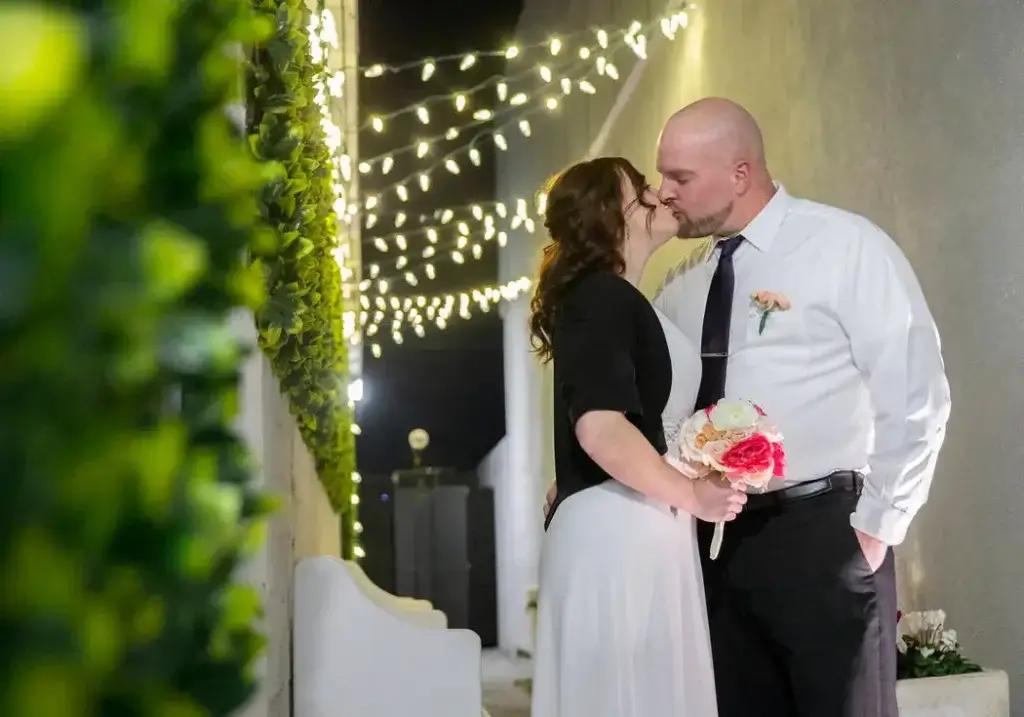
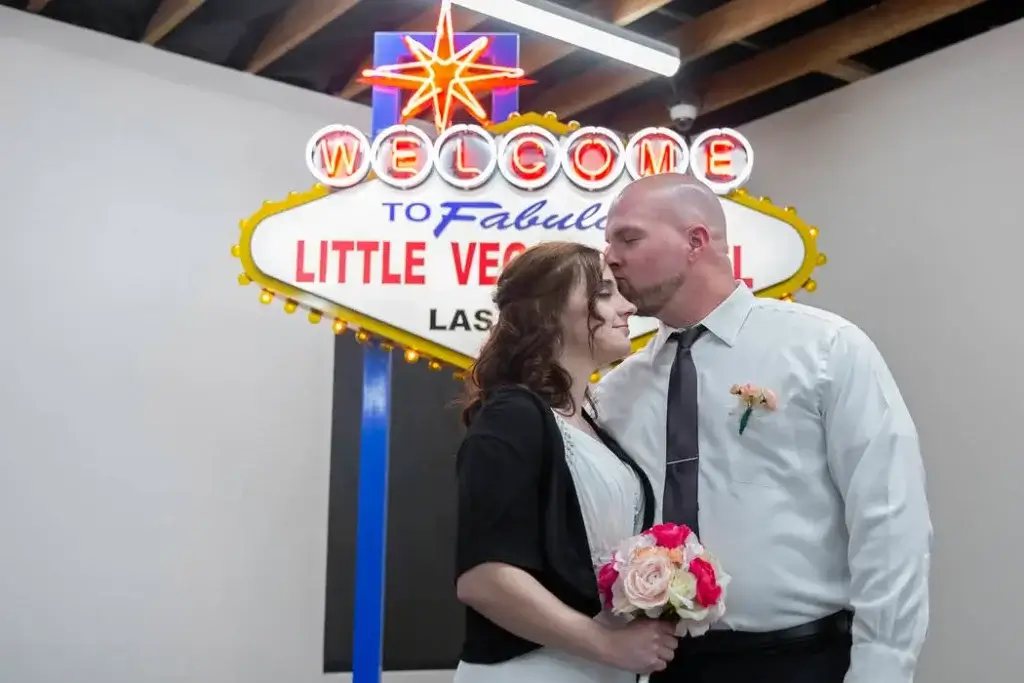
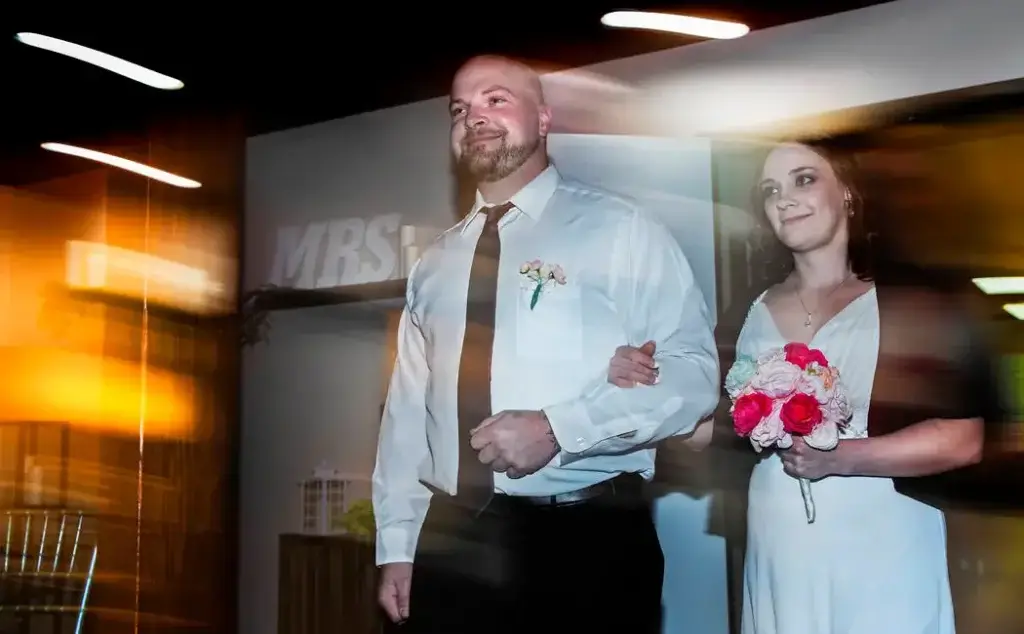
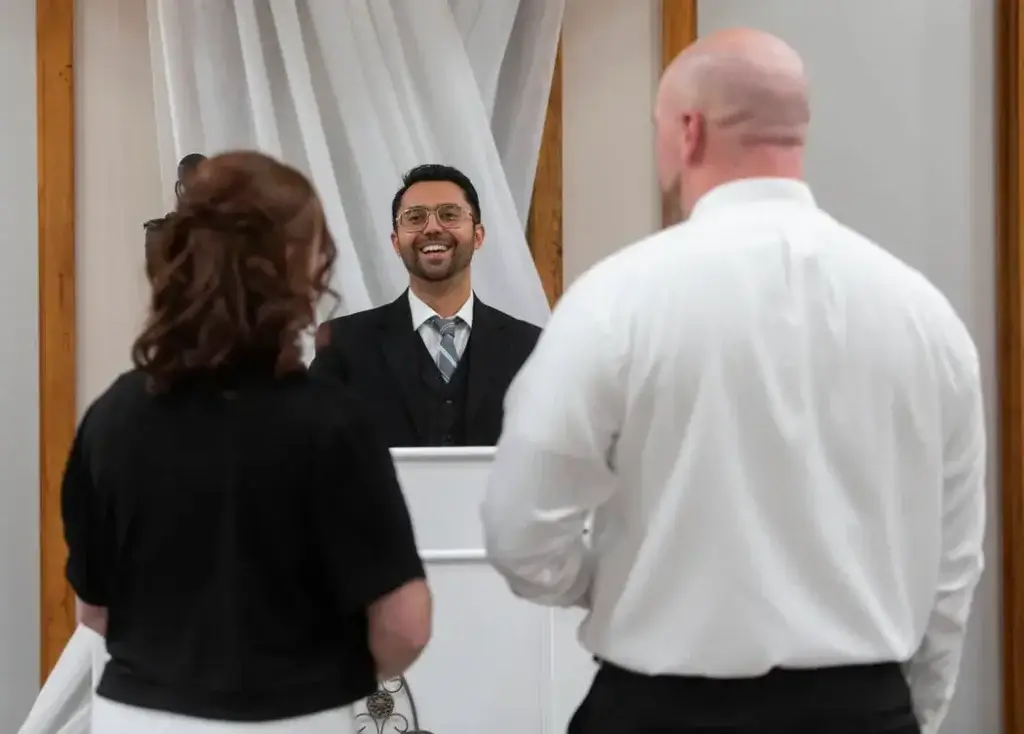
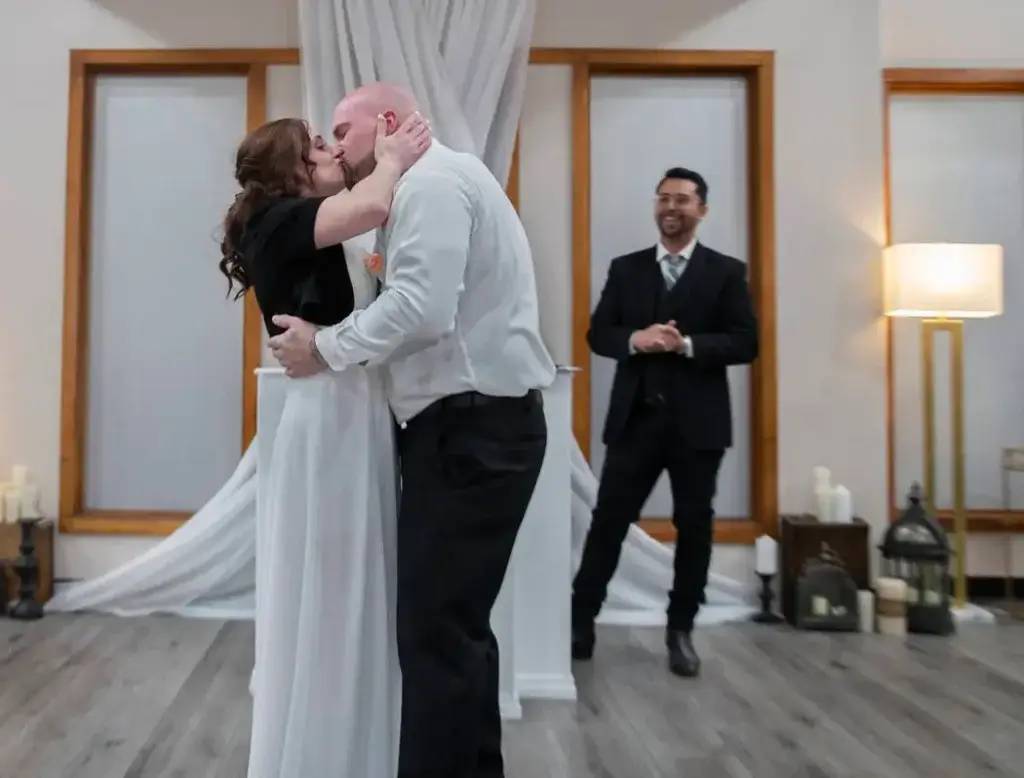
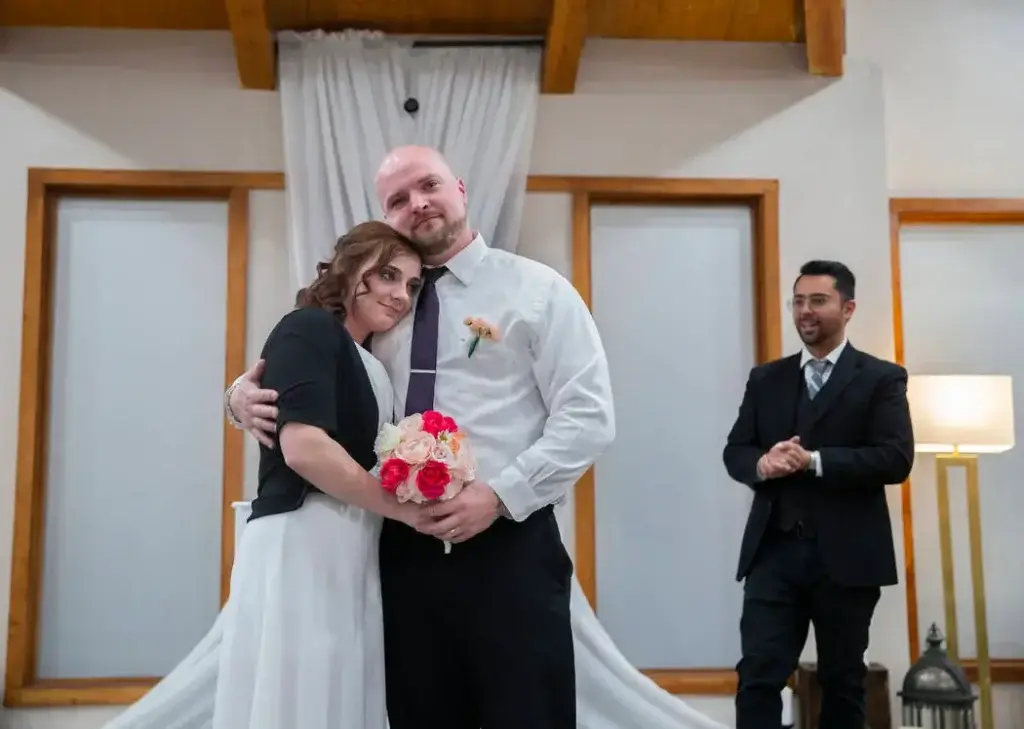
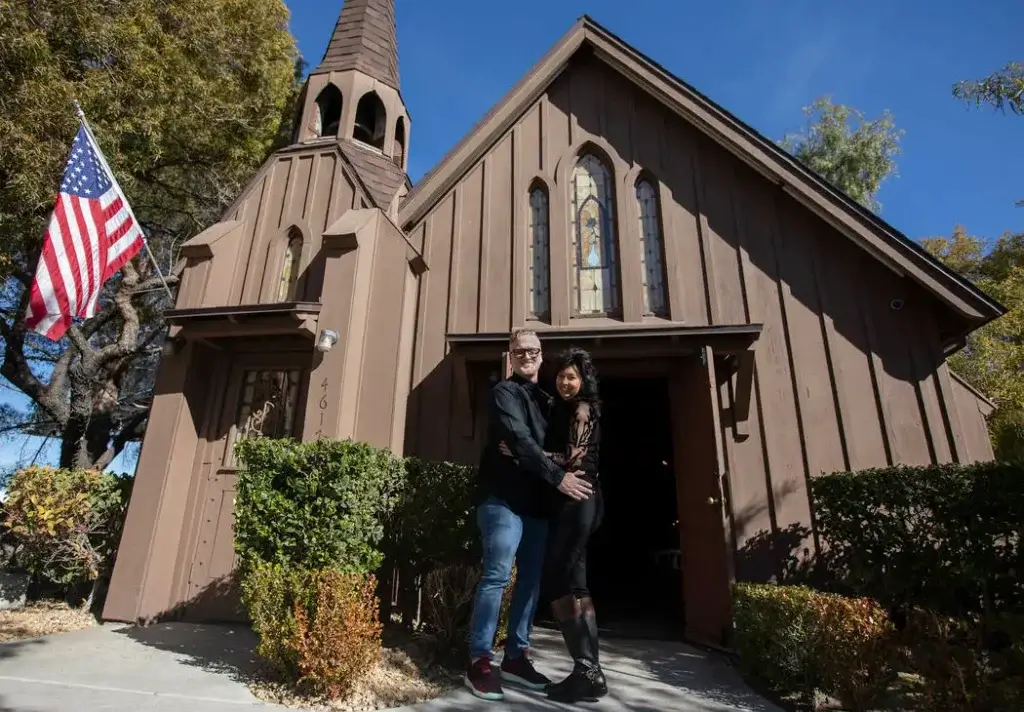
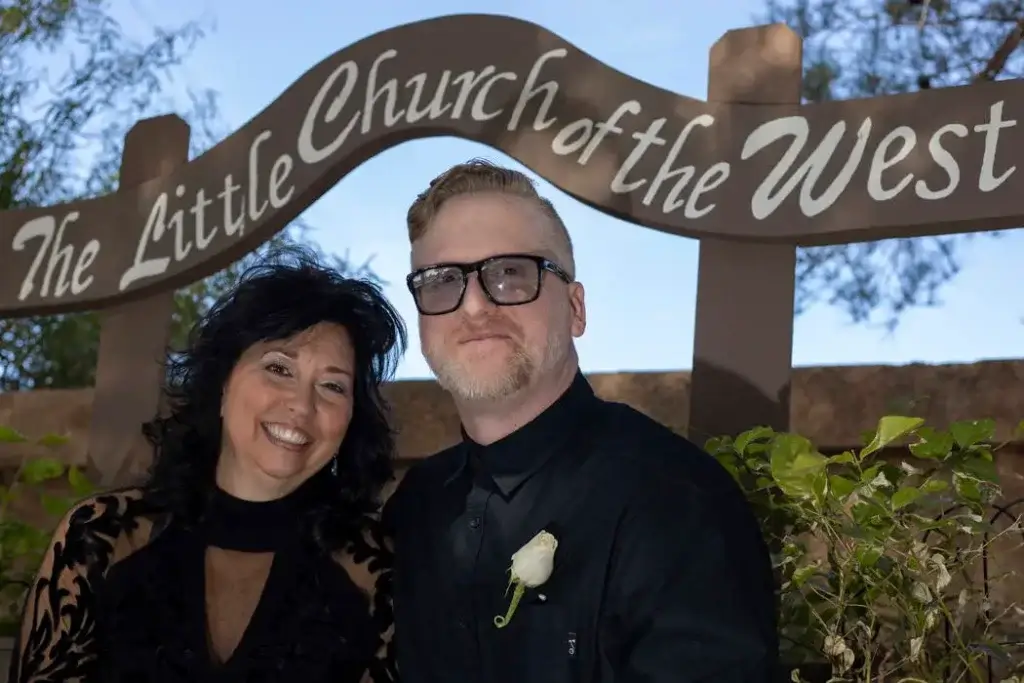
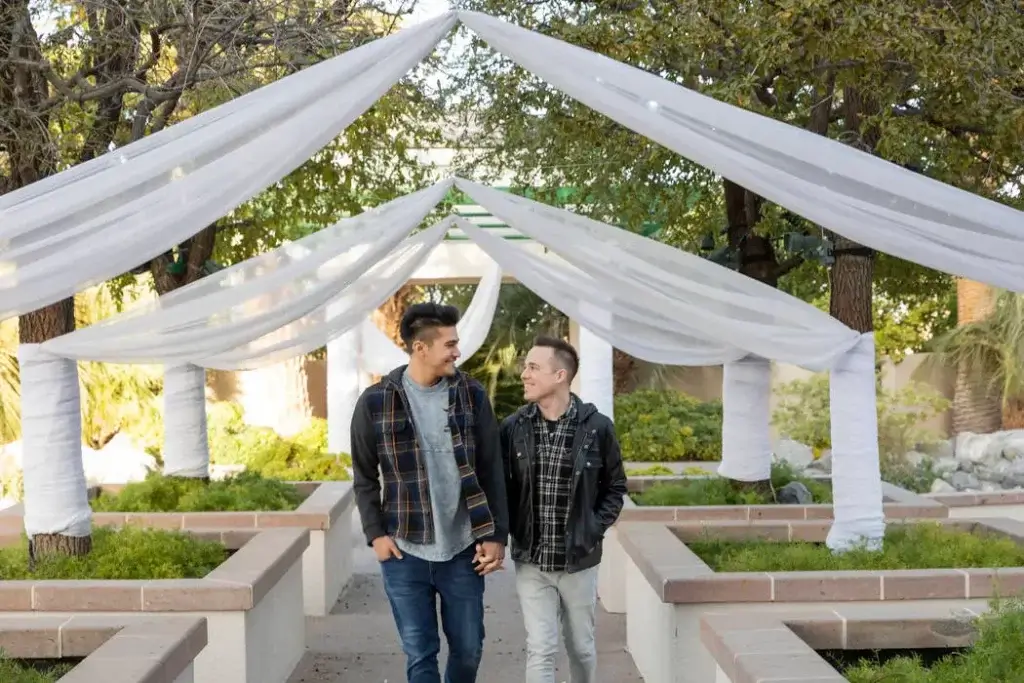
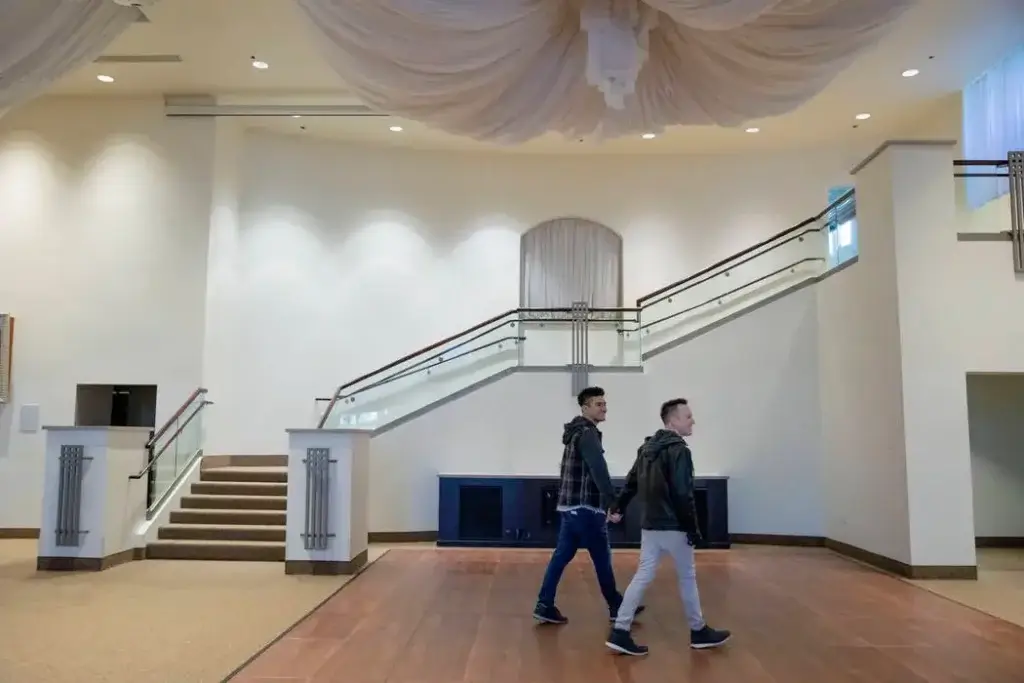
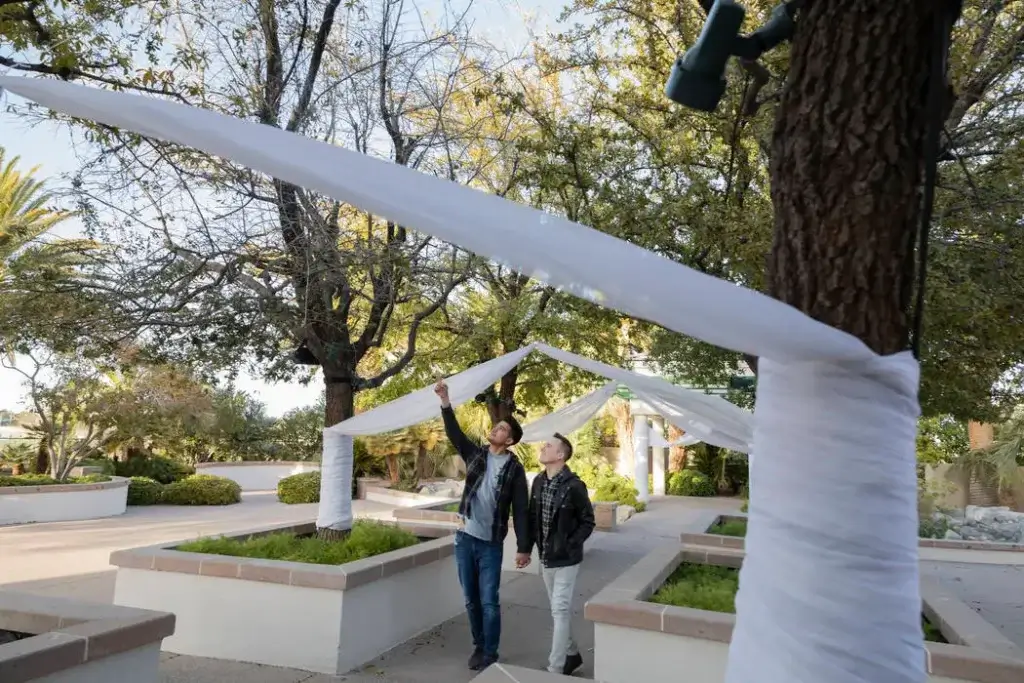
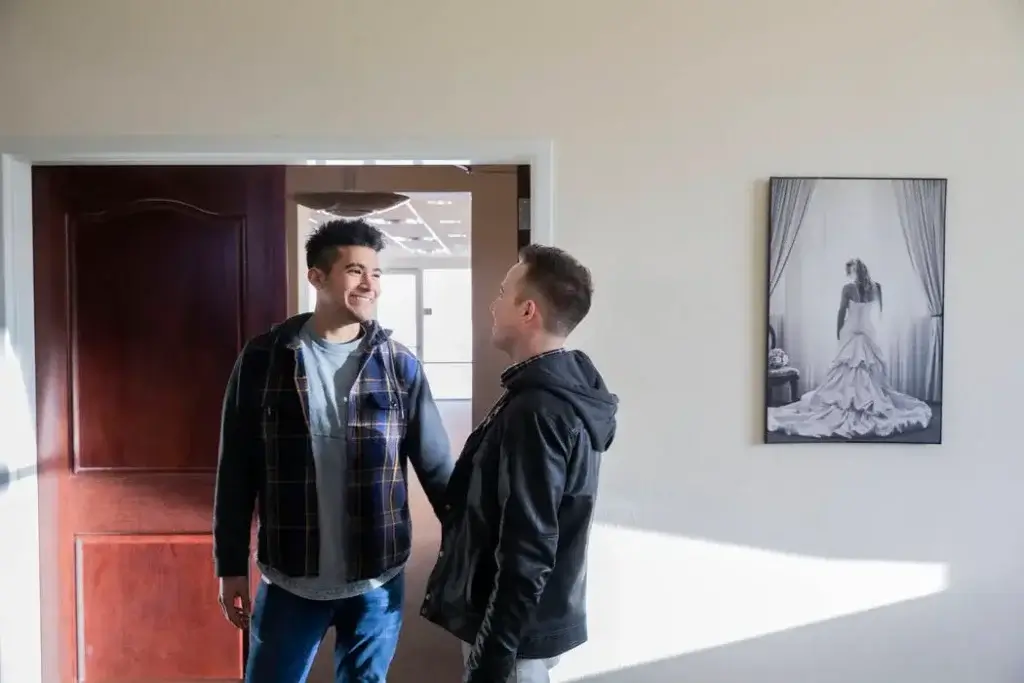
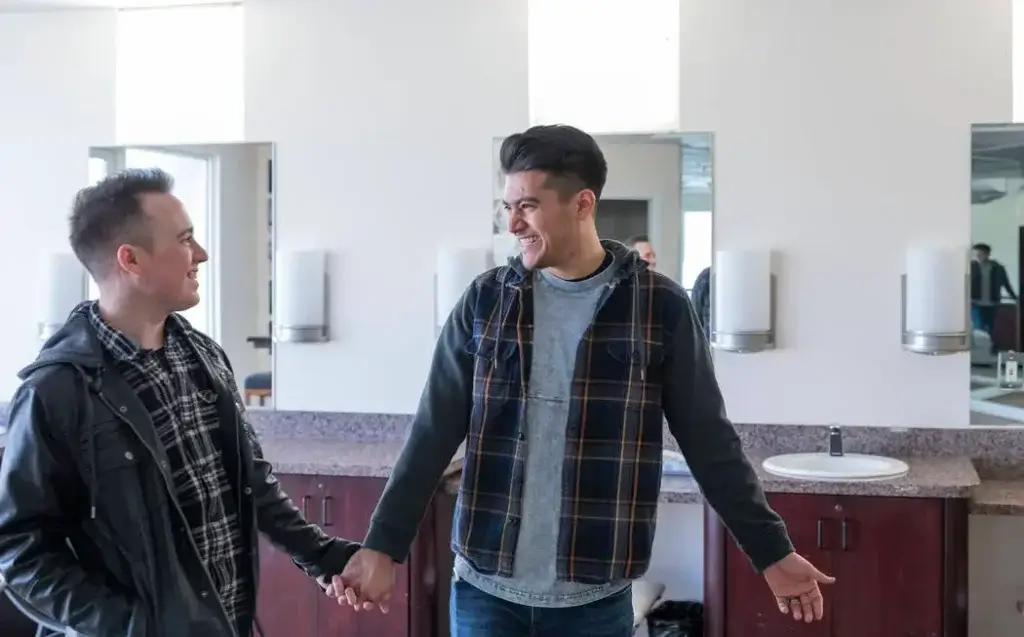
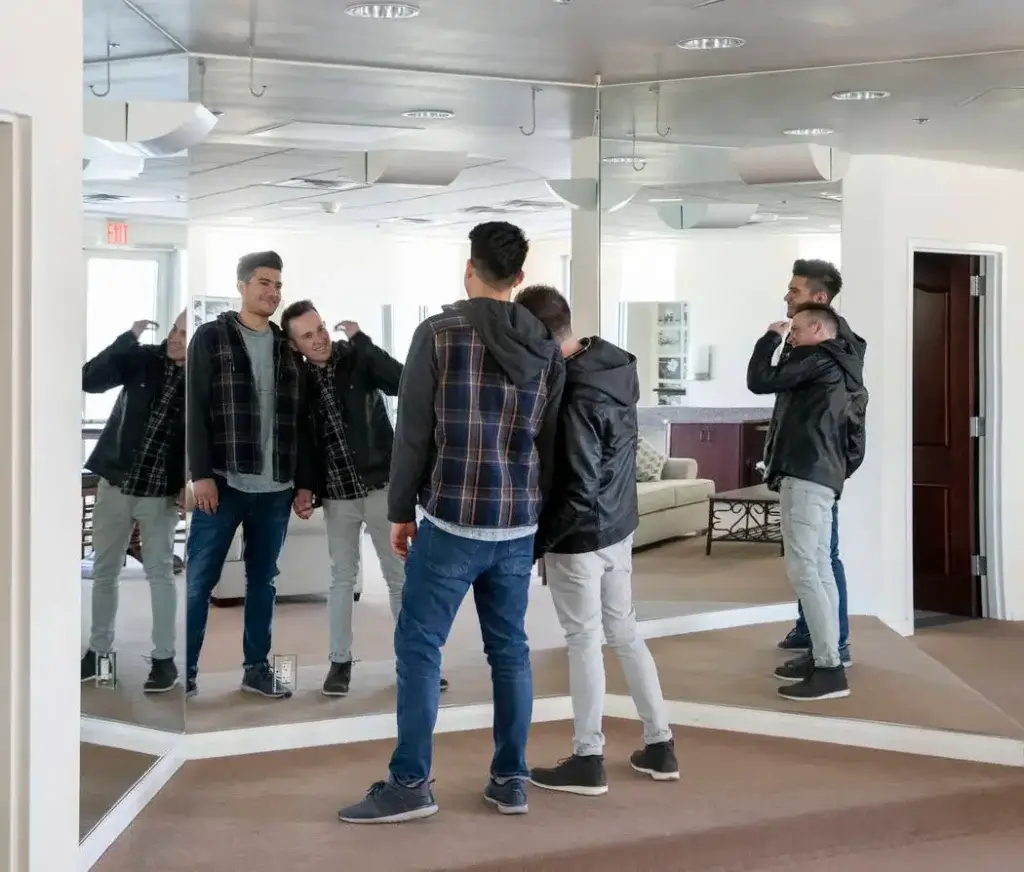
Inside the Little Vegas Chapel, Amanda Schild was smiling in her wedding dress, ready to grab pizza and celebrate her nuptials with her now-husband Jordan Williams.
But there was no drive-thru window or Elvis Presley impersonator in sight. The only keepsake the newlyweds had of a stereotypical Vegas wedding were the handful of photos taken in front of the chapel’s own version of the Welcome to Las Vegas neon sign.
Williams, 30, admits Las Vegas has the stigma of a place to “get wasted and get married and then get divorced the next day.” But Schild said they chose Vegas because it was affordable and convenient. Plus, they’ve been together for nine years and have three children.
“I don’t like the details of planning a big wedding,” Schild, 33, said. “That’s just not for me.”
Williams was coming from Minnesota to Las Vegas for work and he brought up the idea of getting married in Las Vegas, Schild said.
“That sounded perfect,” she said.
Tourists and locals alike are making what one expert calls “smarter marriage choices” from dating longer to ensuring financial stability before getting married. The shift has fueled a decline in marriage rates — and the wedding industry — across the country and also means Las Vegas is feeling the impact as a wedding destination. At the same time, these decisions are contributing to longer marriages than previous generations as divorce rates continue to slide.
“Marriage used to be something that people did when they were younger and just getting started, and they and their partner moved through life together,” Karen Guzzo, professor of sociology at Bowling Green State University, said. “Now…it’s the last thing you do when you are becoming an adult—what we call like a capstone or an achievement.”
That was the case for newlyweds Patrick McFarland, 45, and Melissa Hill, 50, who dated for seven years and lived together before deciding to tie the knot two weeks ago at the Little Church of the West, east of Mandalay Bay, while visiting from Florida.
“We’ve been together forever it seems, but yeah, we did the career (first) as well as bought our first house three years ago, so the evolution is where are we in the next stage,” Hill said.
Downward slope
While a thoughtful approach to marriage is beneficial for couples, the wedding industry is feeling the impact.
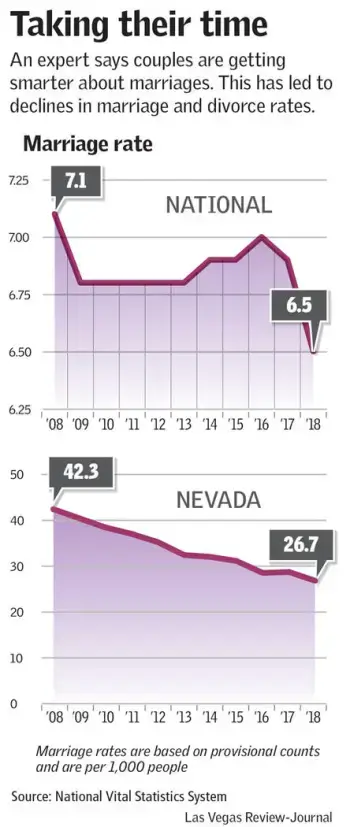
The number of marriage licenses in Clark County has dropped close to 42 percent since its peak 2004, when about 128,000 licenses were issued compared with 71,800 in 2019, according to the Clark County Marriage License Bureau. Clark County Clerk Lynn Goya, who oversees the bureau, said local weddings are a $2.5 billion industry. The Review-Journal previously reported the local industry hit a peak of $3.1 billion in 2004.
Nevada’s marriage rate, measured as the number of new marriages per 1,000 people, dropped to 26.7 in 2018, the states’s lowest rate since the Centers for Disease Control began providing marriage rate figures in 1990. That year the national marriage rate also dropped to its lowest level of 6.5 per 1,000 people from a peak of 8.5 in 2000.
Guzzo said it’s likely because people are taking their time, opting to foster their careers first then move-in with their partner to test the waters.
“That sometimes drives the marriage rate (down), but it does seem like fewer people ultimately end up getting married than prior generations,” she said, pointing out it’s more socially acceptable for couples to live together first. “Spending longer time together in these kinds of serious relationships, you avert, if you married this person, a divorce down the road. You can live together and say, ‘You know what? This is not going to work,’ (and) break up.”
There’s little reliable data on couples who live together since, unlike marriage, there’s no legal registration required. However, Guzzo said declining divorce rates could be an indicator that waiting to get married is proving beneficial. But she added those who do get married tend to be college-educated couples, a group that’s consistently shown lower divorce rates.
University of Maryland sociology professor Philip Cohen, who released a study last year on divorce trends from 2008 to 2017, said couples who wait longer are less likely to get divorced.
“That rising age of marriage is definitely a factor in the falling divorce rate,” he said. “The other thing that goes along with that is higher education. So there’s more people who are not getting married before or until they have completed a college degree.”
The divorce and annulments rate in the U.S., per 1,000 people, fell to 2.9 in 2018, marking a consistent decline since 2000, when the divorce rate was 4.0, according to the CDC. Meanwhile, Nevada has also dipped to 4.4 from a high of 9.9 in 2000.
But Cohen cautions that it’s not necessarily good news.
“Essentially, marriage is becoming more of an elite institution,” he said. “The falling divorce rate is not necessarily good news for society as a whole even if you think marriage is great. It sort of indicates that marriages is becoming more rarefied. It’s more of a select population that enters into marriage and they enter into a more stable marriage.”
Rebranding
Las Vegas Wedding Chamber of Commerce President Jodi Harris said the nearly 100-member group is working together to find ways to boost the marriage rate.
In March 2016, the chamber launched a partnership with the Clark County Clerk’s office and the Las Vegas Visitors and Convention Authority to promote wedding tourism in Las Vegas.
Goya, who serves on the wedding chamber board, said steps have been taken to shed the perception of Las Vegas as an elopement capital.
“We have been seen as ‘The Hangover.’ and that’s not a great brand,” she said. “It’s a great movie and it’s really funny, but it’s not a place you want to emulate to go get married. So, what we’re seeing this year is we have really turned around our image. It’s starting to make a difference.”
Plans by the clerk’s office are in the works to promote and reshape how the wedding industry is perceived in Las Vegas over the next couple years, especially as the city is on track to host its 5 millionth wedding in 2021.
Goya said plans entail working with the Nevada State History Museum to create a wedding retrospective to show how Vegas became a wedding capital as well as creating wedding-themed walking tours. Plans are also in the works with the visitors authority on promotions, such as a photo contest “that can really showcase the new Las Vegas wedding.” Goya also noted an idea, in conjunction with Las Vegas City Councilwoman Olivia Diaz, to designate a portion of the Strip as “Wedding Way.”
Diaz said the timeline is still being hashed out but the hope is to make it a tourist attraction, even adding a wedding walk of fame.
“I think this is another thing that can capture the attention of the newer generation, who are being more thoughtful about where they want to visit and why the want to go visit a place,” Diaz said. “We think by creating something new they will be intrigued and come on down. If somebody that resonates with them got married (here), why not them? That’s our vision.”
Diaz said the city also wants to support wedding chapels by allowing them to be included in the city’s visual improvement program under the Las Vegas Redevelopment Agency, which offers small businesses a 50 percent rebate, up to $25,000, on exterior renovation costs in eligible locations.
Wedding chapels were excluded from receiving redevelopment funds as they were categorized with nightclubs, strip clubs and bars but Goya said that should change after a Feb. 19 vote allowing chapels to qualify for the rebate.
Some in the wedding business like, Donne Kerestic, owner and CEO of Chapel of the Flowers, hope to boost Las Vegas’ marriage rate by building “something so unique” that “you can only see in Vegas.”
“The first half of last year, we personally did decline in the number of weddings,” Kerestic said. “The second half we grew, especially in the fourth quarter…but we spent a lot of time rebranding the property. We invested $2 million over the last few years redoing every single chapel, redoing the grounds.”
Kerestic said he also has plans to construct a new wedding venue on Las Vegas Boulevard.
Michael Kelly, owner of the Little Vegas Chapel, said he has seen the county take steps to recast how the wedding industry is perceived, but said Las Vegas will remain a wedding destination because it’s affordable and couples have to jump through fewer hoops to get married.
“When you need something done quickly and you want it done right and you want it done professionally — that’s how I see Las Vegas weddings,” he said. “They come to Vegas and they think, ‘Hey, I get a vacation. I get a honeymoon and it’s a fraction of the cost of doing it back home.’ It’s just so much easier.”
Little Church of the West Director of Operations Dan Vallance said it’s only a matter of time before the marriage rate picks back up for Las Vegas.
“There’s as many Millennials (those aged roughly 24-39) as Baby Boomers (those aged roughly 56-74) so we’re optimistic we’re going to see a boom again,” Vallance said. “People getting married later in life — that’s not a negative as long as they’re still getting married.”